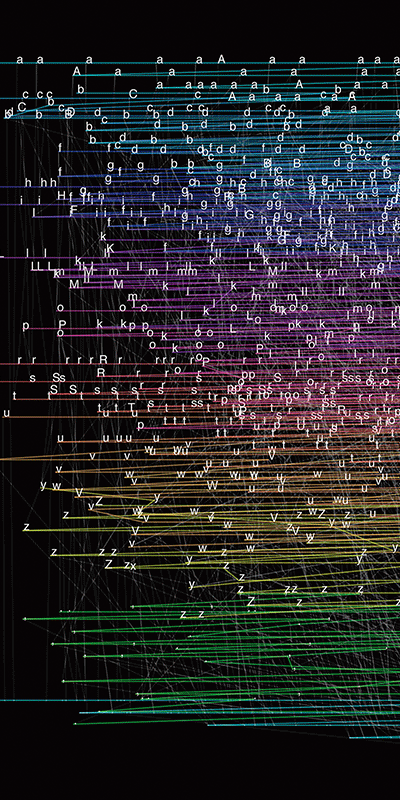Machine Learning
Learn to extract relevant information from data
Have you always wanted to know how to automatically recognize spam e-mails, classify brain data or sort out faulty products based on camera data? The course introduces you to the research field of machine learning (ML), whose methods provide solutions for these and many other problems, in order to learn connections from existing data. Methods of unsupervised and, above all, supervised learning are dealt with. Topics include: regression and classification, dimensionality reduction, random forests, deep learning, kernel methods and much more.
ML methods are largely responsible for the success of various applications in industry and science and have, for example, revolutionized image and speech recognition in recent years. Due to advances in algorithm development and the associated theory, as well as the steadily increasing amounts of data and increasing computing power, it is foreseeable that ML will continue to gain in importance in the future in order to enable data-driven knowledge gain.
Course participants obtain a fundamental understanding of ML algorithms in theory and practice. You will learn which statistical assumptions are made by different algorithms, which pitfalls to avoid when analyzing data, and how great the effort is both for training ML models and for their productive use. In addition, the participants analyze given data, learn to implement ML methods and use Python-based ML libraries in practice.
Benefits
- Training without downtime
- High flexibility through extra-occupational learning
- High efficiency and applicability through practical content
- High learning success through the latest teaching and learning methods and innovative educational technologies such as e.g. B. virtual classrooms, learning forums, chats or mobile hardware internships
Next start date
Winter Term 2024/25
Starting on October 16th, 2024
Registration until October 1st, 2024

What prior knowledge do I need?
The course takes place in English. Basic knowledge of algorithms and data structures as well as basic mathematical knowledge of analysis and linear algebra are required for this course. Knowledge of the Python programming language is helpful.
You can find more information about the required prior knowledge in the Continuing Education Courses section.
Costs
The costs including learning materials, tutoring by a research assistant and the exam amount to 2,300 euros.
How does the course work?
General introductory event in Freiburg

You will get to know the experts and get an overview of the content. The IEMS team will introduce you to the methods of online learning and answer your organizational questions.
E-Training & Online Meeting

You learn flexibly with e-lectures. Work on exercises to check your learning progress. In online meetings and via the forum, you can discuss course content and clarify questions with fellow students and with tutors.
Exam and certificate

At the end of the semester you will take an exam. If you pass, you will receive a certificate from the University of Freiburg. You acquire 6 credit points (ECTS), which may be credited to you in a master's degree.
What can the content be used for?
- Search for hidden connections in large, high-dimensional data sets, e.g. medical databases, production data, traffic data, web traffic.
- Implement complex decision-making processes that are difficult or impossible to program manually, e.g. video processing in autonomous driving, or in voice input.
- Data-driven predictions, e.g. for predictive maintenance in the context of Industry 4.0.
- Data Mining: Use of historical data to improve decision-making, e.g. medical records, medical knowledge.
- Self-adapting programs, e.g. newsreader, which adapts to the user's preferences.
How is the course structured?
- Overview
- Linear Classification & Regression
- Linear Subspace Projection
- Algorithm Independent Principles
- Kernel Methods
- Trees and Forests
- Boosting
- Deep Learning and Neural Networks
Which technical expert is in charge of this program?

Robot Learning Lab
Conact us!
Your personal contact
Do you have questions about the course or would you like to learn more about the Intelligent Embedded Microsystems continuing education program? We look forward to hearing from you.
To register, send us the completed registration form directly by email to iems@weiterbildung.uni-freiburg.de.

